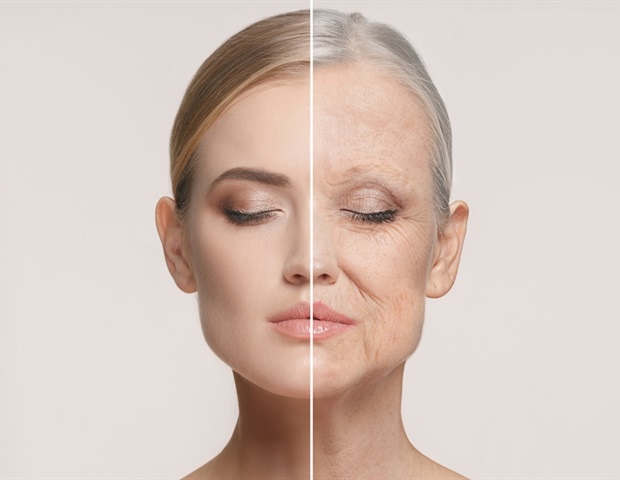Penn State researchers may have uncovered another layer of complexity in the mystery of how diet affects aging. A new study led by researchers in Penn State’s College of Health and Human Development examined how a person’s telomeres: portions of genetic bases that function like protective caps on the ends of chromosomes; are affected by caloric restriction.
The team published their results in aging cells. Researchers analyzed data from a two-year study of calorie restriction in humans and found that calorie-restricted humans lost telomeres at a different rate than controls. Although both groups had roughly the same telomere length at the end of the study. According to previous research, restricting caloric intake by 20 to 60 percent has been shown to extend the lifespan of many animals.
Over the course of human life, every time a person’s cells replicate, some of the telomeres are lost as the chromosomes are copied to the new cells. When this happens, the overall length of the cell’s telomeres becomes shorter. After cells replicate enough times, the protective caps on telomeres disappear completely. The genetic information in the chromosomes may then become damaged, preventing the cell from reproducing or functioning properly in the future. Cells with longer telomeres are functionally younger than cells with short telomeres, meaning two people with the same chronological age may have different biological ages depending on their telomere length.
Idan Shalev, associate professor of biobehavioral health at Penn State University, said that typical aging, stress, disease, genetics, diet, etc. all affect the frequency of cell replication and the length of telomere retention. Shalev led researchers who analyzed genetic samples from the national CALERIE study: the first randomized clinical trial of caloric restriction in humans. Shalev and his team sought to understand the effects of caloric restriction on telomere length in humans. Since telomere length reflects how quickly or slowly a person’s cells age, examining telomere length could allow scientists to find a way that caloric restriction could slow aging in humans.
“There are many reasons why caloric restriction may extend human lifespan, and the topic is still under research,” said Waylon Hastings, who earned his PhD in biobehavioral health from Penn State in 2020. is also the lead author of the study. “A major mechanism for extending lifespan has to do with metabolism within cells. When energy is consumed within cells, the waste products produced by this process can cause oxidative stress, which damages DNA and otherwise breaks down cells. When a person’s cells consume less However, due to caloric restriction, there is less waste and cells do not break down as quickly.
Researchers tested telomere length in 175 study participants using data from the beginning of the CALERIE study, one year into the study, and 24 months after the end of the study after calorie restriction. About two-thirds of the study participants participated in caloric restriction, while one-third served as a control group.
Over the course of the study, results showed that telomere deletions altered trajectories. Over the first year, participants who restricted their caloric intake lost weight, and they lost telomeres faster than the control group. After a year, the weight of the calorie-restricted participants stabilized, and the calorie restriction was continued for another year. In the second year of the study, participants who restricted calories lost telomeres at a slower rate than those in the control group. At the end of two years, the two groups had converged, and there was no statistical difference in telomere length between the two groups.
This study shows the complexity of how caloric restriction affects telomere loss. We hypothesized that people who restrict calories would lose telomeres more slowly. Instead, we found that people who restricted caloric intake lost telomeres more quickly initially and more slowly after their weight stabilized.
Idan Shalev, associate professor of biobehavioral health, Penn State University
The results raise a number of important questions, Shalev said. For example, what would happen to telomere length if data were collected for another year? Study participants plan to collect data over a 10-year follow-up, and Shalev said he is eager to analyze the data when it becomes available.
Although the results are not clear-cut, Shalev said caloric restriction is expected to provide potential health benefits in humans. Previous research on CALERIE data suggests that caloric restriction may help reduce bad cholesterol and lower blood pressure. Shalev and Hastings say that for telomeres, two years is not enough time to show benefits, but they may still be revealed.
Three of Shalev’s trainees, Hastings, current graduate student Qiaofeng Ye, and former postdoctoral scholar Sarah Wolff, led the research under Shalev’s guidance.
Hastings said the opportunity to lead this research was critical to his career.
“I was recently hired as an assistant professor in the Department of Nutrition at Texas A&M University, which I will begin in the fall semester,” Hastings said. “Prior to this program, I had limited experience in nutrition. This program has truly defined my career, and I am grateful to Dr. Shalev for trusting me with this responsibility.”
Calen Ryan and Daniel Belsky of Columbia University Mailman School of Public Health, Sai Krupa Das of Tufts University, Kim Huffman and William Kraus of Duke University School of Medicine, Michael Kobor and Julia MacIsaac of University of British Columbia, University of British Columbia Corby Martin and Leanne Redman of the Pennington Biomedical Research Center and Susan Racette of Arizona State University’s College of Health Solutions contributed to the study.
The National Institute on Aging funded the study.
source:
Journal reference:
Hastings, WJ, et al.. (2024). Effects of long-term caloric restriction on telomere length in healthy adults: analysis of the CALERIETM 2 trial. aging cells. doi.org/10.1111/acel.14149.
#Penn #State #study #investigates #caloric #restriction #affects #persons #telomeres
Image Source : www.news-medical.net
